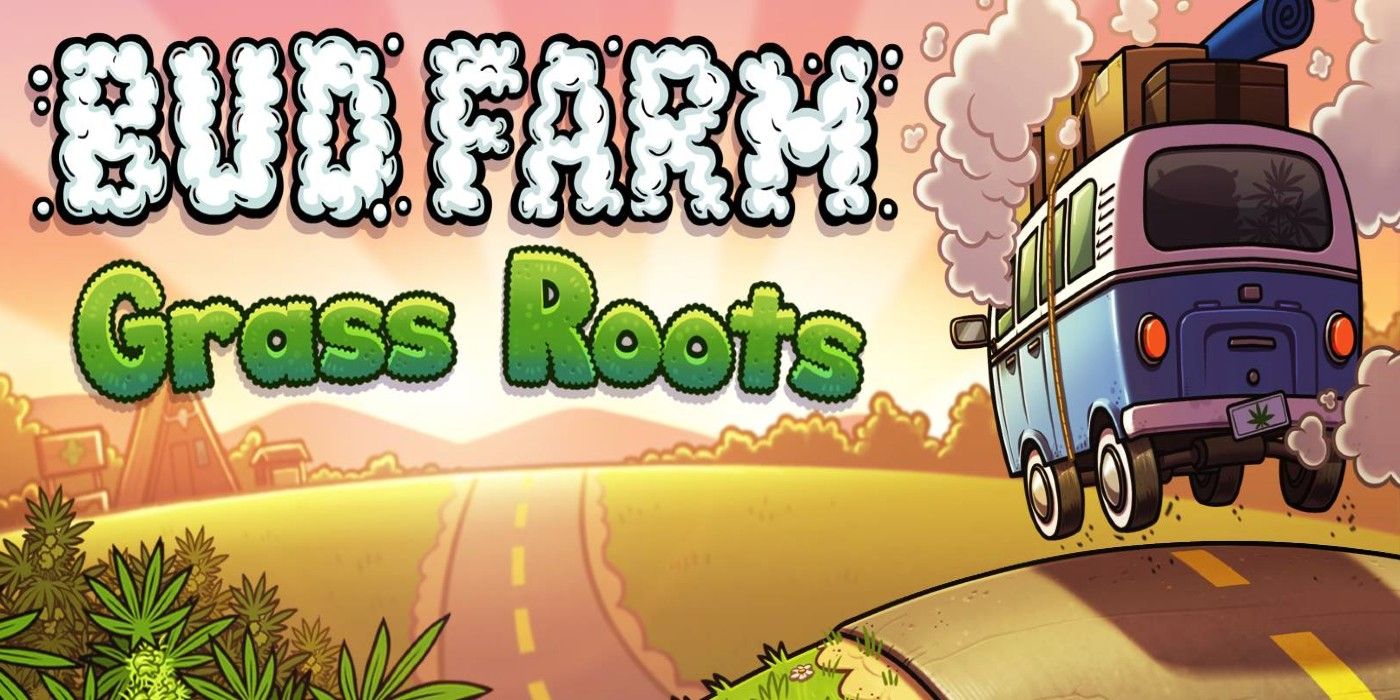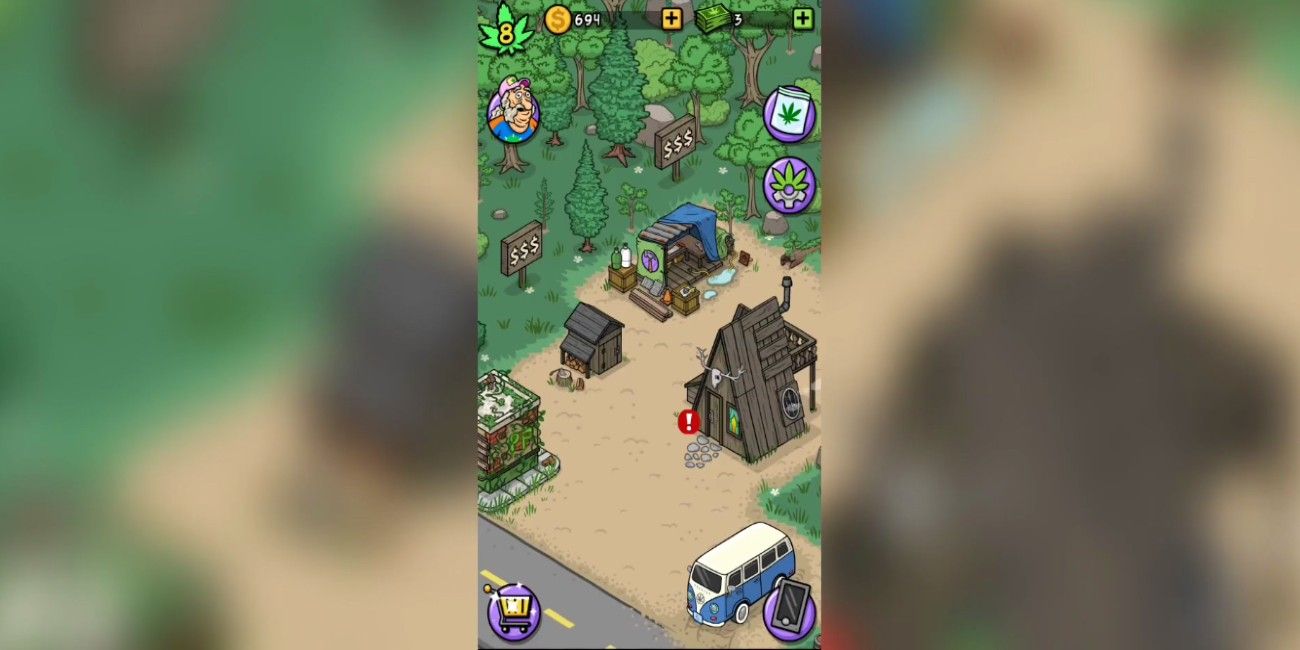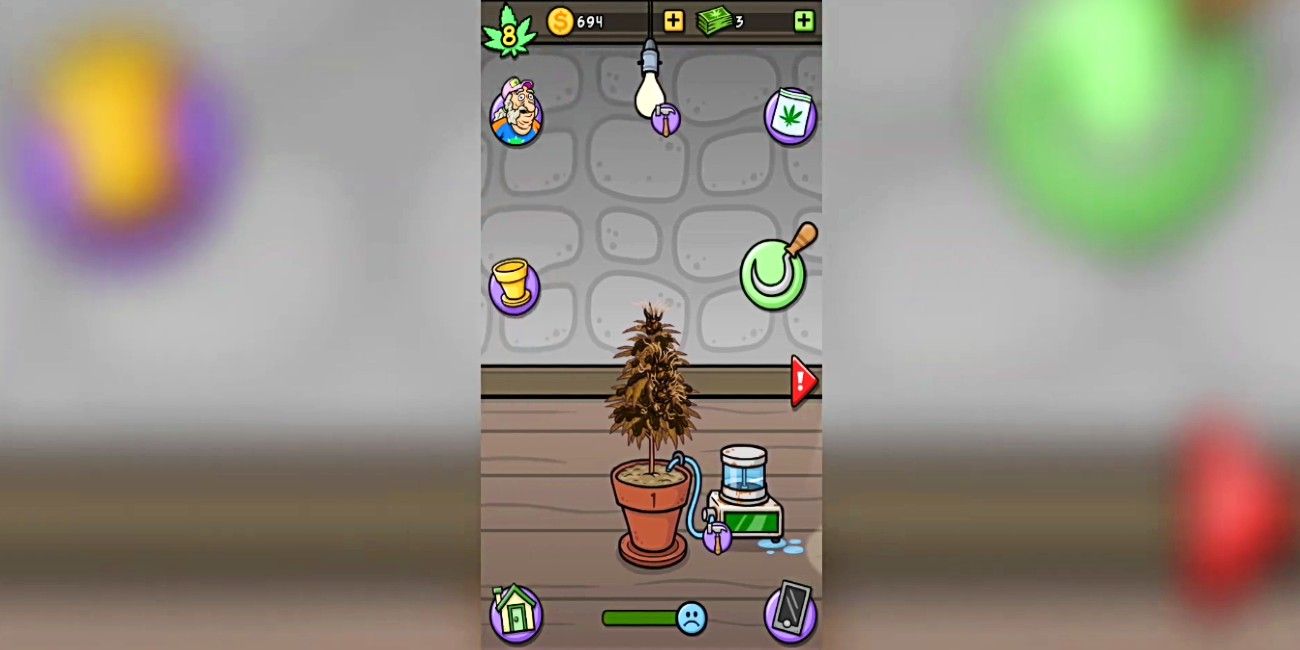The idea that mobile games could outperform console or computer titles bordered on fiction less than two decades ago. Often viewed as subpar, the market that accommodated this seemingly trivial fad was far too niche for juggernaut developers and publishers to invest in, even if the technology that progressed by leaps and bounds suggested otherwise. There were, however, visionaries who poured their soul into creating otherworldly experiences that were either ahead of their time or so wildly brazen that they came within a hair’s breadth of being erased from existence. One such controversial creation was Bud Farm: Grass Roots, a trippy indie farming sim that wore different colors throughout the years without ever losing its rad touch.
Bud Farm started its journey as an interactive add-on on Facebook, but due to its delicate nature, advertising online was out of the question. Before its introduction to mobile devices, the farming sim’s favorable standing within the gaming community was made possible through guerilla and word-of-mouth marketing. With millions of players, a tabletop version, and a fruitful spinoff under its belt, Bud Farm continues to rank high, even to this day. So what is the key ingredient responsible for the game’s unlikely and unprecedented success?
Unlike other titles in the genre, Bud Farm allows players to explore uncharted territories of cannabis cultivation — in the most legal way possible, of course. Set in a fictional land where the notion of running a weed enterprise is locally endorsed and not frowned upon, fringe farmers start small with an empty plot of land. The main objective is to turn the budding marijuana farm into a highly profitable business venture that will eventually yield more customers and allow for further expansion. Players’ general level is indicative of their in-game progress, which can be approached casually or hastened with microtransactions.
Those familiar with games on smart devices might notice that Bud Farm‘s layout does not stray from the design formula of other mobile titles. Aside from the inclusion of optional pay-to-win alternatives, the game features a light-hearted quest and achievements system that showers players with rewards based on their activity and participation. Bud Farm‘s two currencies, coins and potbucks, can be put toward various farm activities that will help the business bloom and broaden its outreach. While the core gameplay revolves around tending to different cannabis strains and reaping the fruits of one’s psychedelic labor via a virtual dispensary, the game’s meta offerings are less one-sided.
After harvesting a certain amount of homegrown buds, players can let their creative genius run wild in the baking portion of the game, where they can spice up age-old recipes with new ingredients and turn their customers into lifelong patrons. To pursue more lucrative venues further down the line, some monetary sacrifices need to be made, and upgrading the farm’s establishments is one of the prerequisites. Fortunately, the larger the farming operation, the more population it will attract to the players’ base, allowing them to complete more quests, claim more rewards, and hire new personnel.
If push comes to shove, players can enlist the help of their friends, who can lend them a hand in addressing their plants’ needs. The so-called Karma Contests are another form of a passive multiplayer aspect, which puts the players’ gameplay skills to the test by having them perform particular actions around their farm in a set timeframe. The option to visit different farms through Budbook is also available to players interested in claiming more in-game goodies or monitoring the progress of other auspicious cannabis farmers.
Although it is nigh impossible to draw direct comparisons between Bud Farm and farming sims like Stardew Valley and Harvest Moon, there are some similarities that might appeal to gamers who do not mind the unconventional approach this mobile game utilizes. Despite not being an idle clicker, Bud Farm is not a time-consuming application unless players want it to be. The game balances its components in moderation and provides an opportunity for virtual weed farmers to go from zero to weed hero at their own pace. Even if the players’ outlook on farming sims does not necessarily align with Bud Farm‘s chill offerings, the game is certainly worth exploring, especially for those curious about the growing cannabis subculture and its derivatives.



